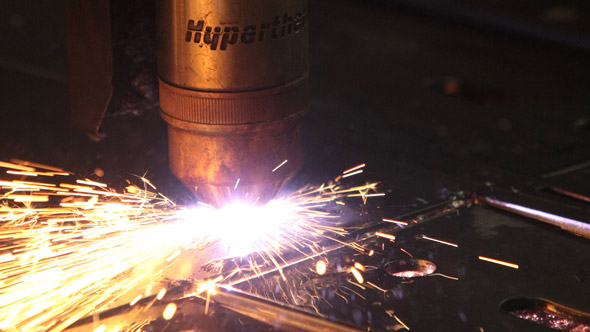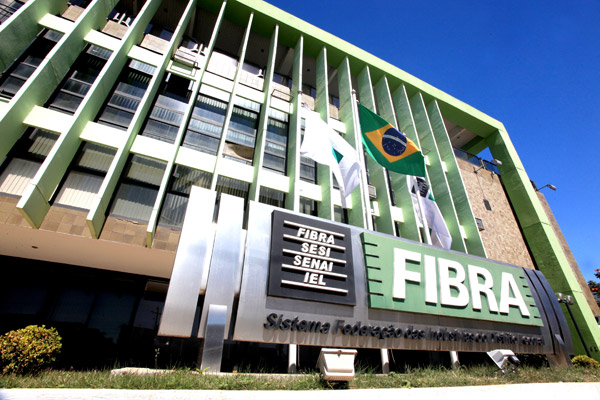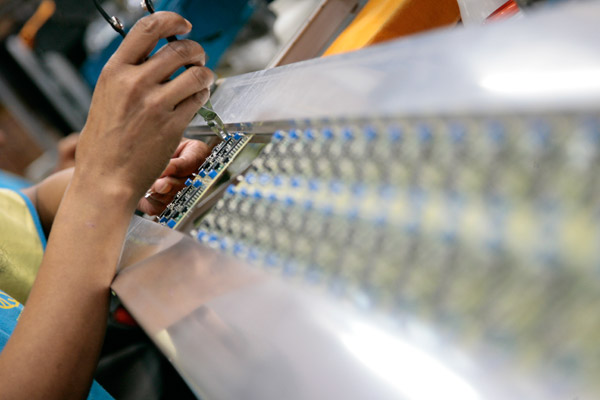Brasília: The Fastest Growing City in Brazil
Brasília is one of the main economic centers of the Central-western Region, presenting the best quality of life and the most accelerated economic growth in the country. That is due partly to the consolidation process of the productive sector that is, little by little, surpassing the civil service which has long dominated the federative capital of Brazil.

Sistema Fibra – Interview of the President
FIBRA’s Structure
Down to Work
Defense, Setting Strategies, and Planning Support
Brasília: A more industrialized capital
Brasília is one of the main economic centers of the Central-western Region, presenting the best quality of life and the most accelerated economic growth in the country. That is due partly to the consolidation process of the productive sector that is, little by little, surpassing the civil service which has long dominated the federative capital of Brazil.
The Federal District industry represents 8,8% of the GDP, which is composed of approximately 4,800 companies employing up to 120,000 people.
Brasília was built to be the political and administrative center of the country. However, in the visionary plans of ex-president Juscelino Kubistchek, there was always the desire to bring social and economic development to the central region of Brazil. Hence, over its 50 years of existence, thousands of Brazilian people have immigrated to the Planalto Central, attracted not only by the civil service to welcome the labor in need of opportunities.
The profile of the Federal Capital has adapted to this economic development; nowadays, the Federal District has consolidated its commerce and its provision of services and it also has an industrial sector that asserts itself more and more in the economic landscape. We have here several segments with construction, metallurgy, IT, food, clothing, furniture, grains, printing, household appliances and laundries. There is also a strong tendency to have more industries in the pharmaceutical and semiconductors sectors.
The proximity with the power spheres is an ally in the negotiation process to draw more companies and to develop the economy in the Brazilian Federal Capital. Brasília has competitive advantages: a strategic location, and a strong consumer market. Industrialization is the best alternative to generate more income and jobs. The contribution of industry to the Federal District GDP is currently 10.2%, while it is projected that this will rise to 15% by 2015.
It is in this project that the Federation of Industries of the Federal District (FIBRA) finds its reason to exist. Born to aggregate one of the major productive sectors of the Capital, the FIBRA was established 40 years ago for the purpose of continuing as the main driving force for the social and economic development of the Federal Capital. The Federal District industry represents 8,8% of the GDP, which is composed of approximately 4,800 companies employing up to 120,000 people. Disaggregating the sector, the highlights go to Construction comprising approximately 340 companies and 21,000 employees) and the Information Technology and Communications (ITC) sector comprising 437 companies and 10, 000 employees.

The food processing sector comprises 113 companies employing 6,000 people. There are 197 companies in the Printing sector, which employs 2000 people, while the metal and mechanic sector has 167 companies and 1,500 employees.
These industries are the driving forces that push forward employment opportunities and and raise the population’s income. FIBRA advances the interests of the Federal District industries and is present in all the stages of discussion concerning this segment that performs the main economic activity in Brazil.
FIBRA’s primary purpose is to promote a more attractive environment for investors and more productive conditions for companies already installed in the industrial park, in order to attain social and economic development in a balanced and fair way. Maintaining a good relationship with the legislative and executive powers, the Federation has been able, from the start of the term of the current President, Antônio Rocha, to carry out the proposals under discussion at a local level by means of the industries legislative agenda of the Federal District. FIBRA’s presentation of an annual legislative agenda celebrates its tenth anniversary this year.
But FIBRA is not limited to defending the interests of the industrial sectors to the legislature. FIBRA also has the mission of helping local industries enter international markets with the goal of increasing exports. For this purpose, FIBRA participates in missions abroad and promotes meetings between companies’ delegations at the Industries Federation headquarters.
FIBRA’s goal is to guide a vast exploration of the potential and activities of the Federal Capital. At the same time, FIBRA attempts to attract investment to the Federal District. One of its projects to attract investment is the planned Digital Capital Technological Park (Parque tecnológico Capital digital – PTCD), to be built in a 123 ha area near the Granja do Torto. The ITC segment is one of the most important initiatives of FIBRA to attract new industry and new investment., as well as to expand employment opportunities.
FIBRA’s Structure
FIBRA is composed of ten industrial federations that represent 10.2% of the Federal districts GDP.

Structurally, FIBRA is organized into three main branches, which have grown out of its four decades of representing industry in the Federal District. The industrial social services branch, Serviço Social (SESI/DF) is concerned with social responsibility towards the industrial worker, and promotes education, health, sports and culture.
The second branch, the National Service for Industrial Learning (Serviço Nacional de Aprendizagem Industrial – SENAI/DF) is responsible for educational and professional training. Its goal is to set vocational education and labor qualifications for local industry. It is present in strategic locations in the city, offering professional qualification with a high quality level of professional training, in order to achieve the ideal profile demanded by the labor market of the Federal District.
The third branch, Instituto Euvaldo Lodi (IEL/DF), is responsible for developing connections between industry and educational institutions, especially between universities and industries; offering internships, and conducting studies and researches requested by the companies settled in the industrial park.
Down to Work
Besides executive officers, FIBRA has a full and representative council composed of boards of directors that provide important thematic nuclei that are synchronized with the needs and interests of Brazilian industry and, above all, with the business wishes of the various industries.
These thematic boards act in the following areas: defense of the interests of each industry, union development, worker relations, technological development, and environmental concerns. These boards provide technical advisory services that complement the federation organization, accompanying the actions developed within public programs of economic development promotion. They make regular social-economic data surveys on the Federal District, as well as provide studies and analyses of trends and developments of interest to the sectors.
They also collect, analyze, treat and disseminate the legislation important to the industrial sector; and develop and promote actions related to the expansion of the employers union associative movement as well as identify opportunities for the local industry, whether they are in Brazil or outside the country.
Defense, Setting Strategies, and Planning Support
FIBRA also guides and defines the strategies of the other FIBRA system entities, whose actions must be in accordance with national entities. FIBRA’s aim is to develop a chain of support for the interests of industry in all areas of action. With that, Fibra converts this action into positive results for the social-economic growth and strengthening in the Federal Capital. “Our desire is that Brasília maintains itself with the best social indicators, the highest education level, and the best quality of life in Brazil, and this milestone is converted into good economic indications, bringing to the Federal Capital a character that is more entrepreneurial and less political and administrative”, says President Antônio Rocha.